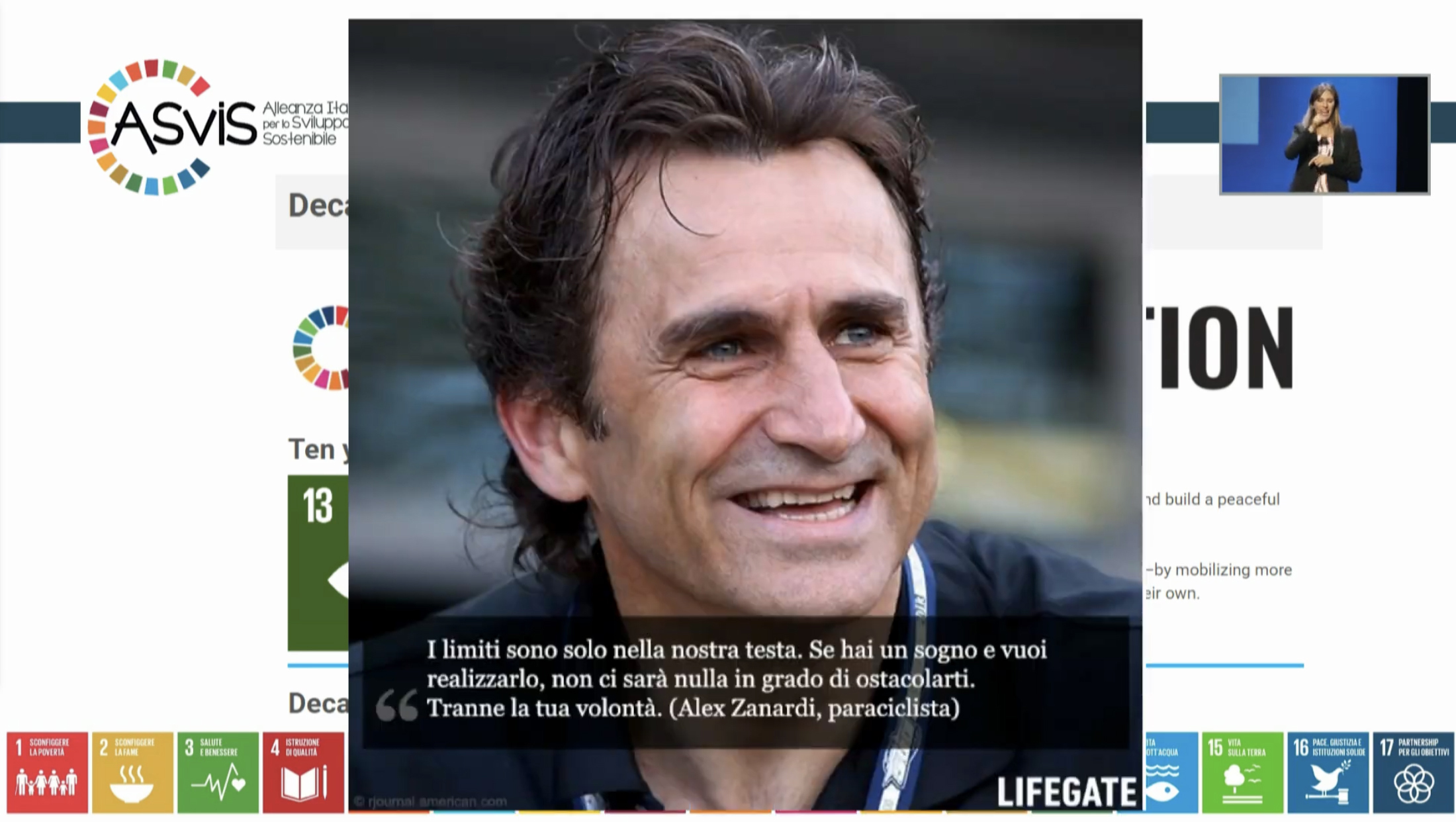
“The 2020 Budget Law and the sustainable development. Where are we at?”
“The challenge of the Sustainability is the challenge of our time. It’s an opportunity and it takes to save our future”. Those words were spoken by Minister Roberto Gualtieri well summing up the content of the ASviS Report about the 2020 Budget Law that has been presented today in Rome; an independent study that evaluates the impact of the provisions of the Budget Law on the different aspects of the sustainable development, in order to understand how the measures of the government affect the wellbeing of the community. The aim is to verify if Italy has started to direct its own choices in support of sustainability, in order to lead our country to a path of sustainable development.
The change as intergenerational tie
Pierluigi Stefanini, the ASviS President, opening the activities, pointed out the importance of the sustainable development to face the various emergencies and to put in place a change as an international tie. In fact, the reading of the Budget Law in view of the 2030 Agenda can promote the adoption of the reforms our Country needs and it is estimated that the work done gives a glimpse of the paradigm shift in the perspective of Development. However, an acceleration on investing is necessary, in order to emerge from recession, as well as the strengthen cooperation among civil society, institutions, companies, universities, to ensure that all energies added together lead to the desired change.
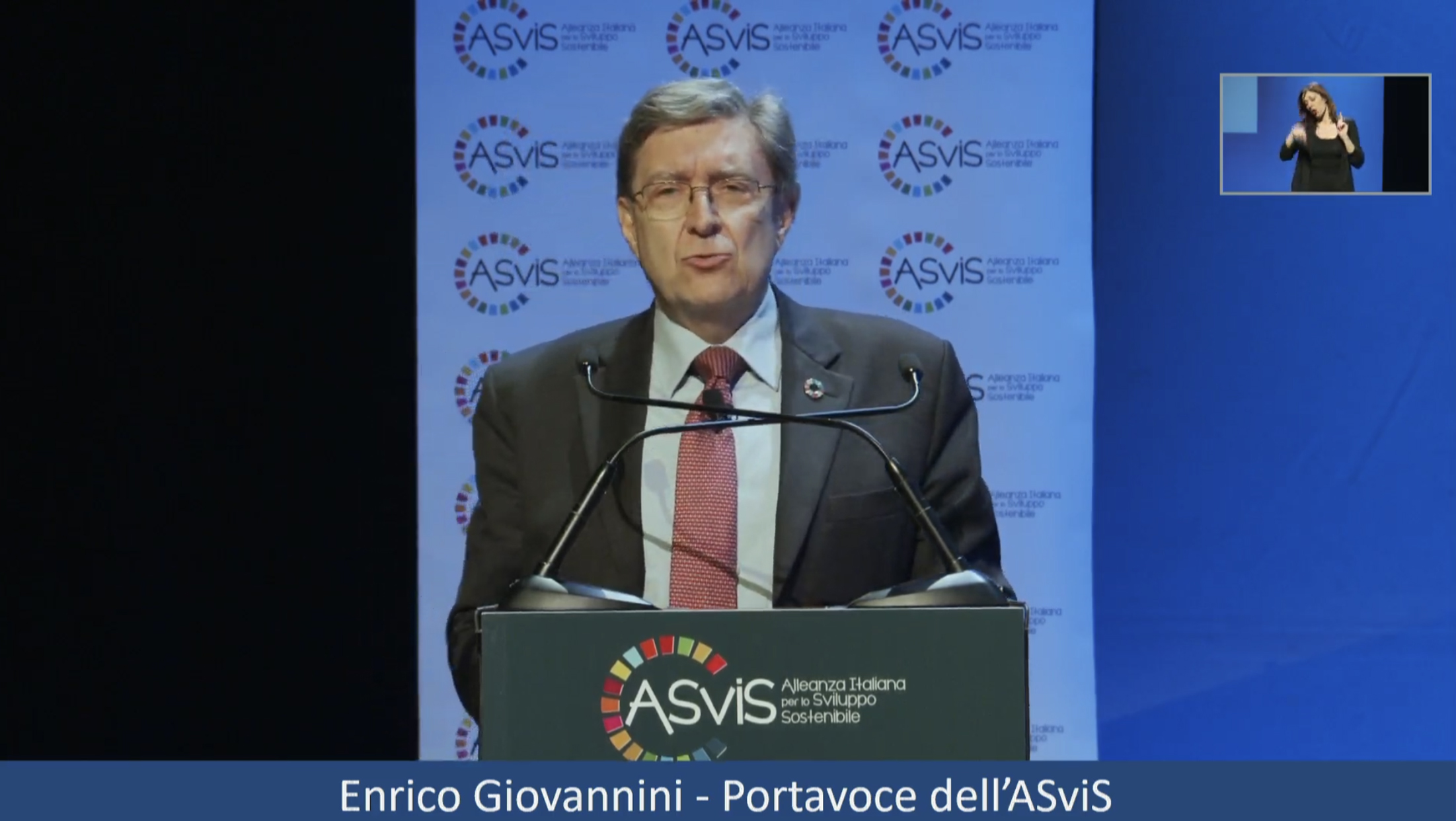
The Budget Law and the 17 UN’s goals
“This report is a document that has no equal at international level” said Enrico Giovannini, the spokesman for ASviS, and he pointed out that this report is really useful to keep on top of the people’s awareness of the sustainability issues. In relation to the 2020 Budget Law, the situation that emerges from the analyses carried out is that compared to the 17 goals there are improvements but compared to others there are sharp worsening mainly due to the lack of political action. Compared to 2020, Italy improves in 10 goals and gets worse in 7.
Between 2017 and 2018 there has been significant improvement in 6 goals: poverty, sustainable food and farming, energy system, innovation, sustainable model of production and consumption, governance quality, peace, justice and solid institutions. There is a slight progress in 5: health, inequalities, condition of the cities, fight against climate change, conditions of marine ecosystems. There is a slight downturn in education and in economic and employment condition. There is a significant worsening in 4: gender equality, water and sanitation; conditions of terrestrial ecosystems; international cooperation.
The Budget Law for 2020 has very positive signs. However, there are significant gaps in education, cooperation for the development, protection of biodiversity, on which we need to act as soon as possible and to direct in correct way the subsidies that Europe provides to our Country for the sustainable development. “The educational issue is mainly essential because we need to up the level of the average culture of our Country and action is needed through appropriate policies on gender inequalities because the relationship between female and male education is getting worse. Likewise, income and employment show positive trend but without the jolt that is necessary for the renewal. The international and national macroeconomic dangers can affect our economy in the coming months and there has been 18% of discouraged / unemployed. In terms of inequalities, there has been interesting elements as the family allowance that should re-launch and put in order the subsidy system”. In environmental terms, it lacks a planning of climate change adaptation, we are not on a trajectory of the decarbonisation and we need as soon as possible a law against the land consumption. There are interesting progresses regarding the crime rate reduction and the timing of justice.
The steps to take
According to professor Giovannini, in our Country it’s necessary to include in the Constitution the principle of Sustainable Development, an action of president Conte sent out to all the ministers in order to put the 2030 Agenda at the heart of its own action, the inclusion of impact assessment which runs ahead the adoption of laws, to expand the audience of the companies which are required to non-financial reporting, the adoption of an annual Law about the Sustainable Development and an Informative which is aimed at all citizens about those issues.
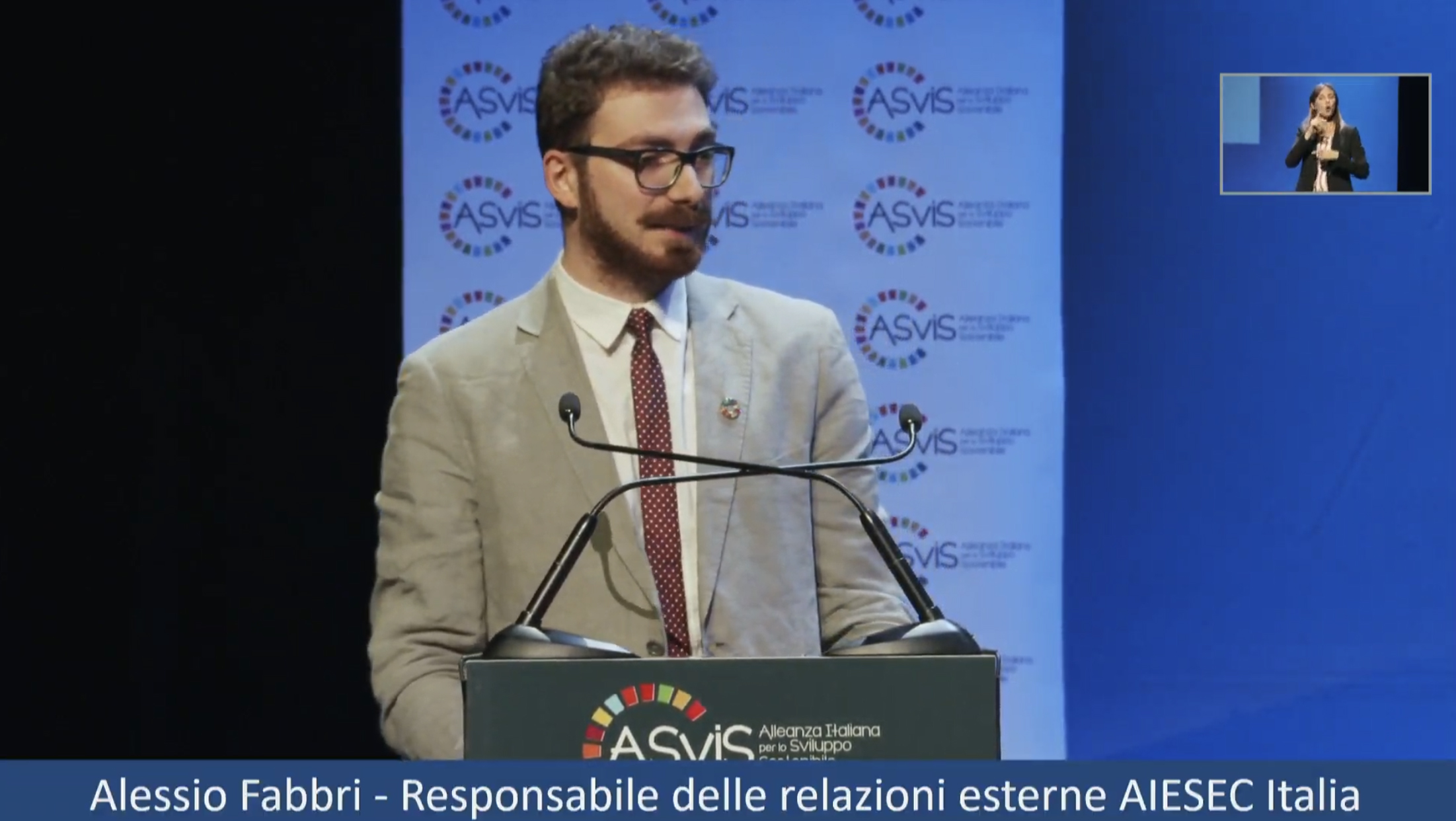
The voices of young people
Among the protagonists of the event in Rome there were some young people which have turned the implementation of the issues of the 2030 Agenda into their own daily mission. As well as Alessio Fabbri of AIESEC, a no-profit that deals with the training of young people for a responsible leadership. “We cannot imagine a world in which progress is at the expense of others. For us, the concrete action toward all targets is a priority and it can make the change.” He also expressed concerns about the percentage of neet, i.e. young people who are neither working nor in school and he pleaded for the help of institutions to take steps toward this issue.
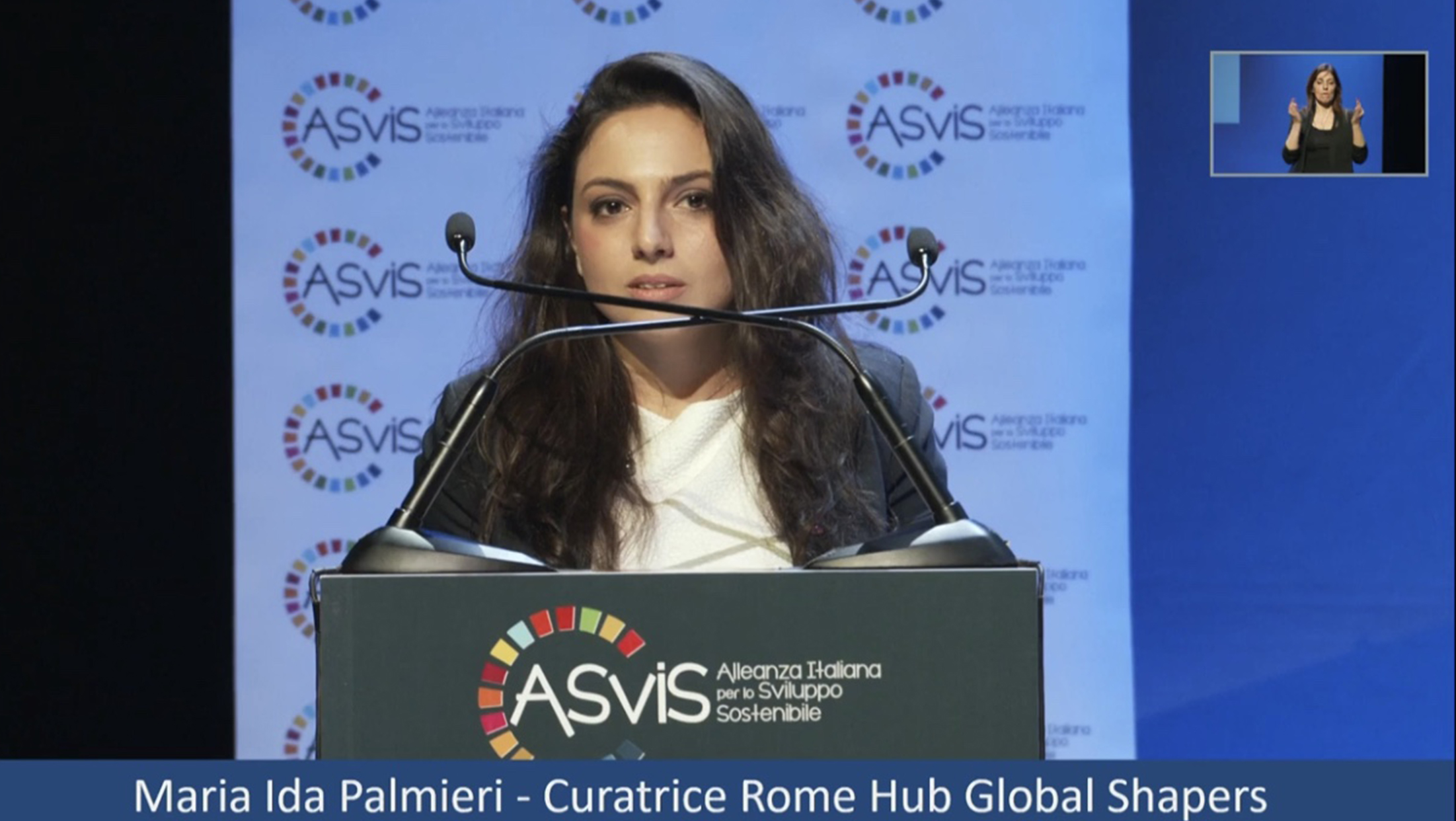 Maria Ida Palmieri of Rome Hub Global Shapers echoed him, she pointed out the requirement that the Government increases investments to stay ahead of the technological revolution which will change the working world, by creating new professional profiles. So, invest greater resources in education (greater digitalisation and teacher training) and continuous and permanent training in the working world.
Maria Ida Palmieri of Rome Hub Global Shapers echoed him, she pointed out the requirement that the Government increases investments to stay ahead of the technological revolution which will change the working world, by creating new professional profiles. So, invest greater resources in education (greater digitalisation and teacher training) and continuous and permanent training in the working world.
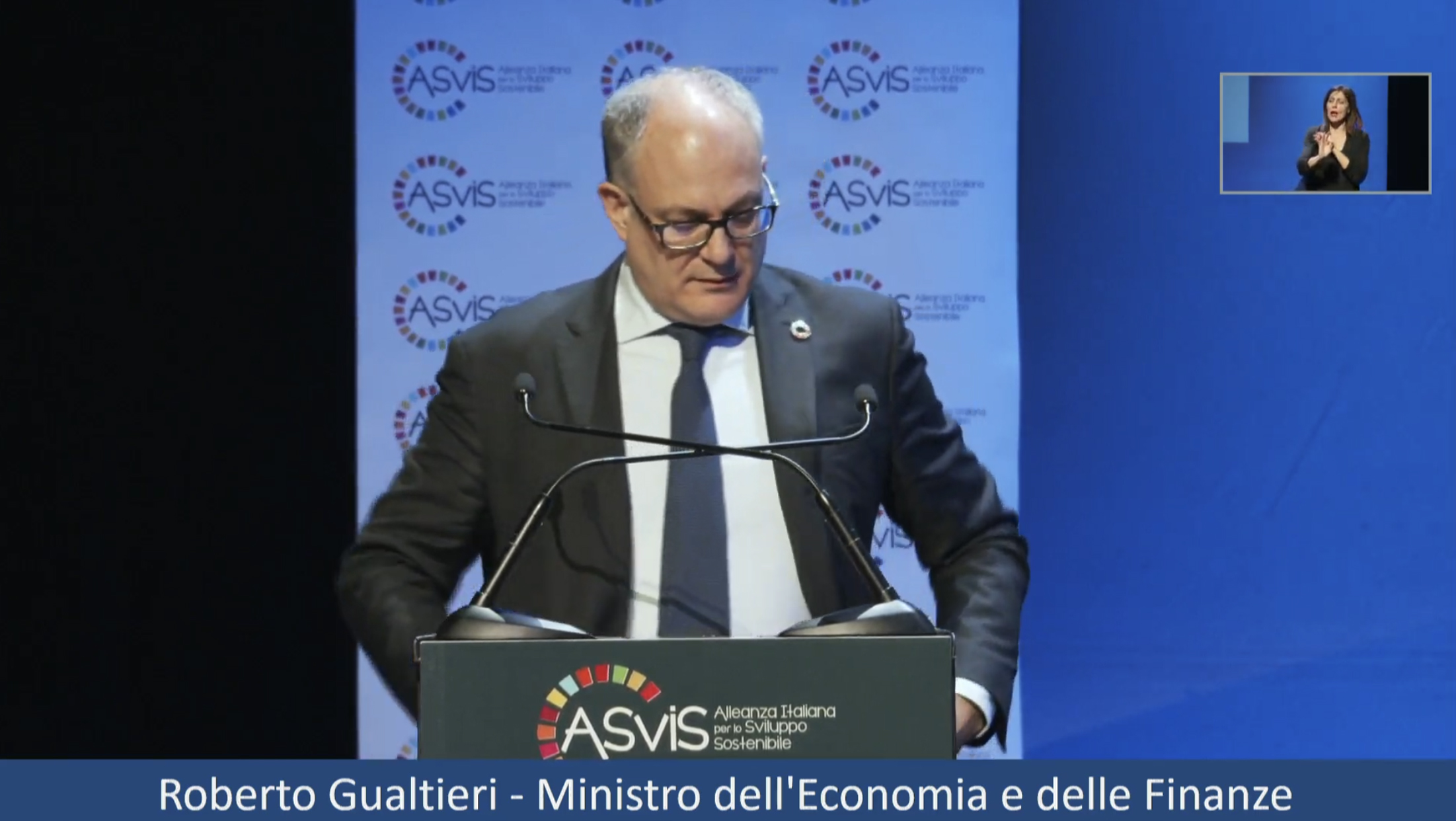
The situation according to the Italian politic…
The Minister Roberto Gualtieri said that he is aware of those limits: “we have done something and we are award that there is much more to be done”, though pointing out the full agreement with the actions of Asvis in the method and in the substance and the coincidence between the results of the Asvis’ analysis and the BES report of the government: in fact, both have a positive impact of the measures that are already being implemented in the manoeuvre, as the support to the welfare and to the family, the cut taxes on labour, the incentives for the preschools, the Sustainability criterion and the enhancement of the circular economy. There are critical issues on which the government intends to work and to focus the attention and the resources with concrete and not generic measures (Green Bond, green steel industry, eco-friendly cars) that implement the Green New Deal. As well as the aim is to do much more for education and training in order to face the future challenges. The challenge of the Sustainability is the challenge of our time. It’s an opportunity and it’s to save our future.
Italy can be leader in the European Green New Deal. There must be a great political, social, economic, democratic alliance which takes this paradigm in order to put all this at the heart of the attention of the system.
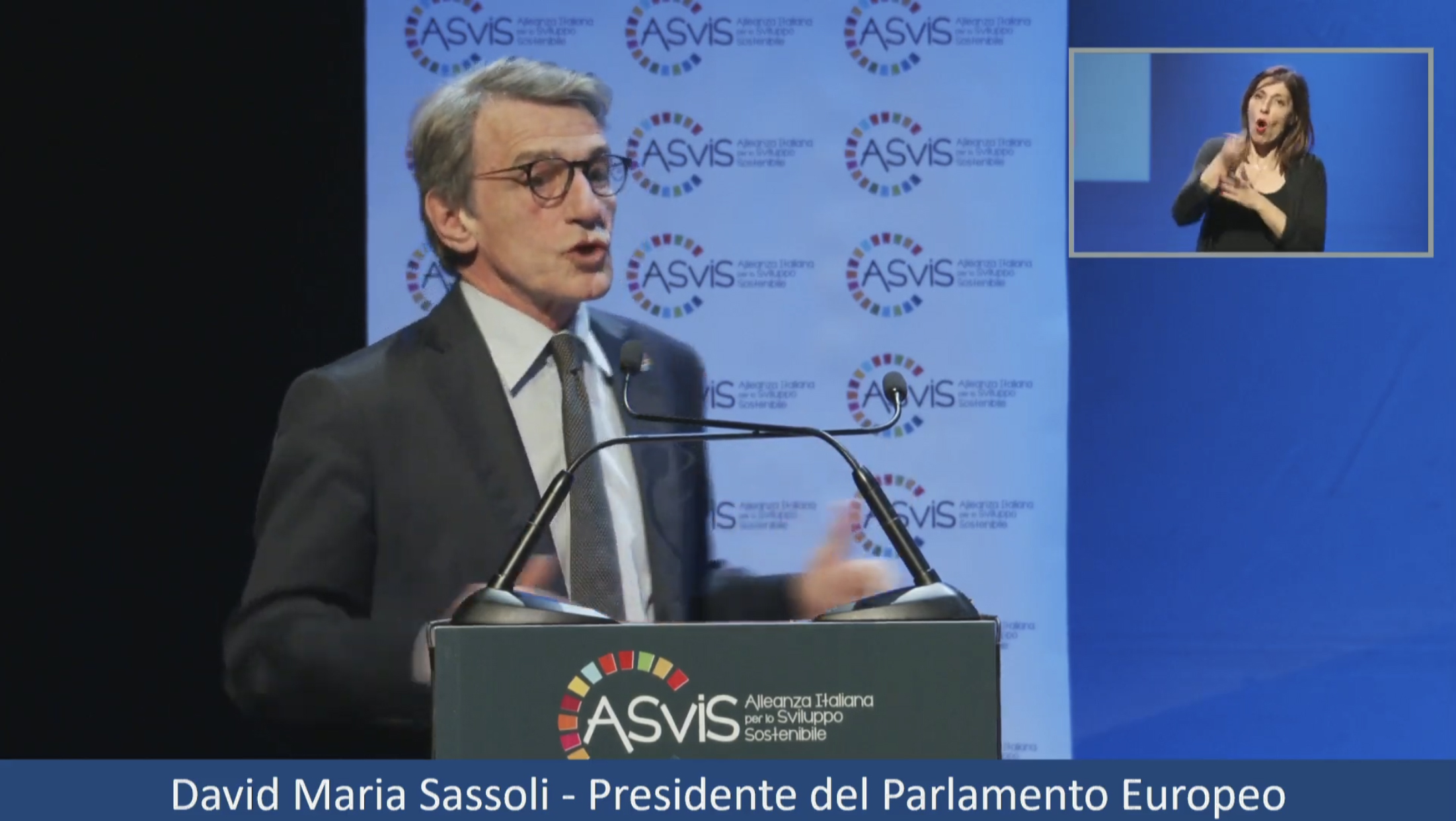
And according to the European one…
The President of the European Parliament, David Sassoli, pointed out the importance of the involvement of Asvis in the European road leading to the climate change: “Europe is the most important market in the world. What it’s going on with us has a reflection on the behaviour of others. It’s necessary to the road that we have decided to take. How could we pave this road? It’s possible only with the member States. That’s why the involvement of Asvis is very important. At the beginning of the legislative period, we have decided to tackle the fight against the climate change by trying to focus our efforts, to modify our rules, to make sure that everything contributes to the result of 2050. But this is not enough to point out our priorities. The Bible says “the truth will set you free” but man chooses darkness; we have to pave realistically this road. The multiannual financial framework of UE will say us where Europe will put and remove money. Which programs are basic and which are not. It’s about explaining to the member States that we are working to increase their capacity. It’s a political fight. The aim of the Green New Deal is this: to change the development model by increasing work. We have to try to ensure that none of the 27 UE States lags behind and that no company lags behind and that no worker is laid off. We risk to be too as enlightenment thinkers, we must be realistic. That’s why the alliance is important. The topic is how the States today take part at the multiannual budget. In this moment, the States are selfish, they don’t understand that the investment in the Union is a win-win. We have to go beyond the national sphere and to enable Europe to take an economic and moral leadership role of this change”.
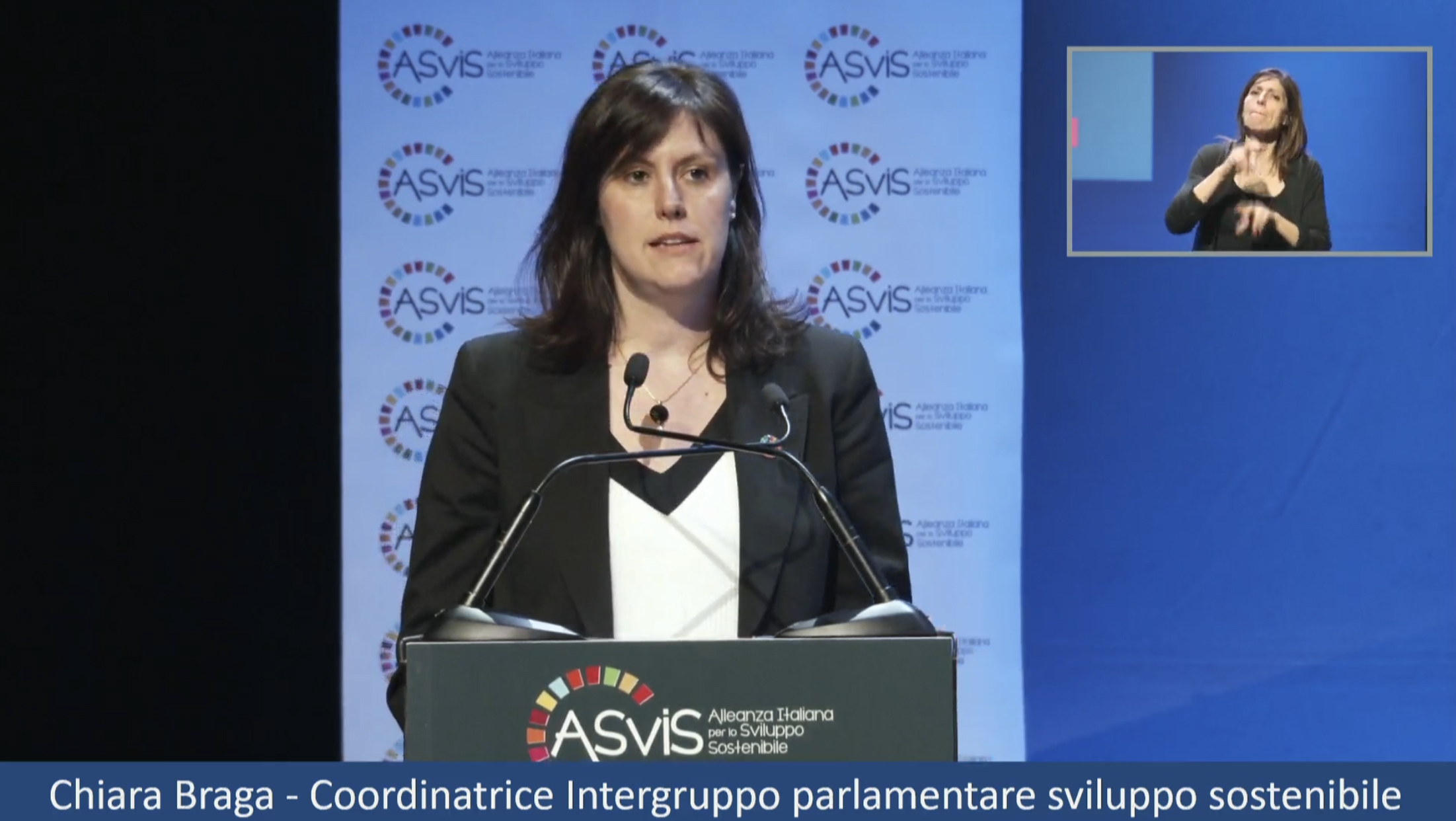
The sustainability as beacon for the daily political action.
The Honourable Ms Chiara Braga is aware of this great opportunity, she is member of the Parliament’s intergroup for the sustainable development which brings together representatives form various political forces at the House and it evaluates the impact of all legislation adopted, in order to correct possible choices and to increase the citizens degree of awareness . Ms Braga pointed out that the 2030 Agenda is a beacon for the activity of their own group inside the parliament, in evaluating all the laws presented to the House, and she pointed out also that it’s important that the laws aimed to the Sustainability offload the costs onto the weakest.
Nothing can hold us back. But our will
As professor Giovannini concluded “in Italy we have invested 5 years in the issue of the sustainable development and this Budget Law is a change away from the previous situation, there has been a step change. But, it’s necessary to accelerate the change which has to be first of all cultural”. In fact, as Giovannini remembered us by quoting Alex Zanardi: “The limits are in our mind. If you have a dream and you want to realise it, there will be nothing able to hold you back. But your will.”
